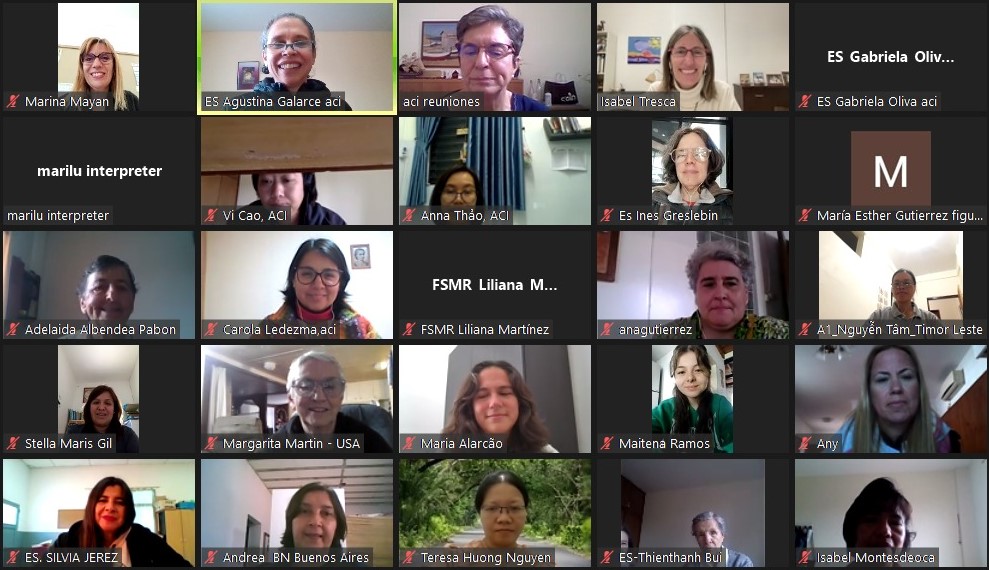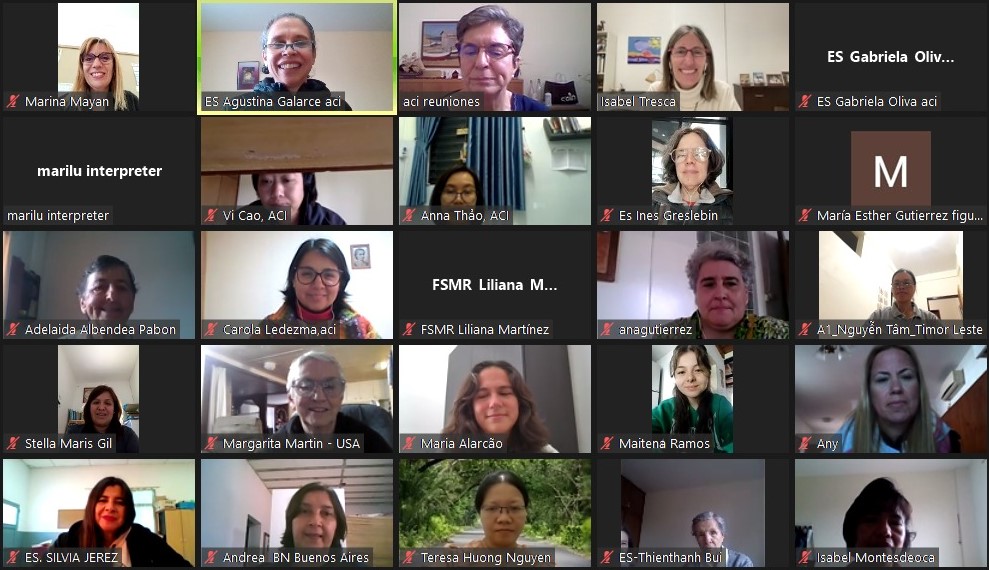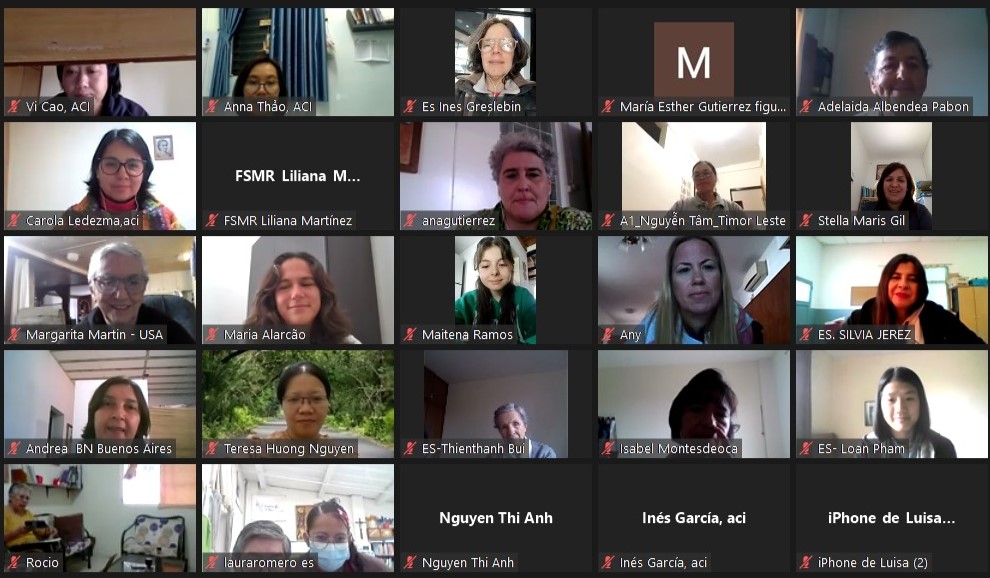
16 Sep A network that doesn’t break
Meeting of the Non-Formal Education Network, September 12, 2024
“Many small people, in small places, doing small things, can change the world.” This quote by Eduardo Galeano encapsulates the experiences shared in the Non-Formal Education Network, where we discussed our educational work with children and youth in various locations.
We began the meeting with a short prayer and the wish to be encouraged by hope in this new life that is dawning every day, among us and in our educational communities.
The first experience of Non-Formal Education that we heard about was the Tasse project in Fonte da Prata, which has been running since 2004, trying to provide answers to the social problems of this neighbourhood near Lisbon, with many migrants from mainly Portuguese-speaking countries. Lately, the big problem in this neighbourhood has been the lack of housing, which forces large families to live in very small flats in precarious conditions.
The Tasse project, part of the Santa Rafaela María Foundation, aims to promote the integral human and Christian development of the most vulnerable people. Through workshops and school reinforcement, it fosters the self-esteem of children and young people. It was moving to see, through a video with several testimonies, how the young people value this work and recognise its fruits, in short, how it has changed their lives. The testimony of one of the monitors and former participant of the project, Adelino, made us understand how the work of non-formal education is a way of taking care of ourselves from generation to generation, weaving a continuous network of care, as he expressed in his words: ‘I would like, when I grow up, that these children are able to take care of me’.
After some time for reflection and questions, we listened to Isabel Tresca, from the educational community of the Colegio de Belgrano (Argentina), coordinator of the pedagogical area of educational innovations, which is part of the Latin American Centre for Solidarity Service-Learning (of Uniservitate).
Isabel spoke to us about the service-learning methodology as a space for participation and bridging gaps. Based on a text by a 13-year-old Slovenian girl, she explained how service-learning is done in a network, in this weaving together, which makes us position ourselves from a place where we all learn from each other and we all need each other.
Together, we came up with a joint definition of solidarity. We also heard some young people speak of solidarity as this desire to go out to meet the other, to build a more fraternal humanity. Isabel reminded us that service-learning is based on solidarity: ‘a firm and persevering determination to work for the common good, that is to say, the good of each and every one of us, so that we are all truly responsible for each other’ (John Paul II, 1987).
The desire to bring the Pedagogy of the Heart into dialogue with the Global Education Pact leads us to seek concrete paths of fraternity, interdependence, encounter and social transformation. We are looking for a solidarity that is more horizontal than vertical, more fraternal than assistance-based. Networking between educational communities helps us to put this horizontal solidarity into practice.
The pedagogy of service-learning leads us to educate in solidarity through experience, which is then reflected upon and translated into action. This learning not only has an impact on the present, but also forms responsible citizens for more participatory democracies involved in social transformation.
And this can be done from a very early age with children, as we have seen in the experience they have had in the Marist Project in Cordoba (Argentina), in which the children themselves recognise the needs of others and become involved in the transformation of their reality. ‘Learning by doing together in the service of the common good’ is, in short, the great driving force of service-learning, through concrete service, in which the children are the protagonists and the agents of this transformation, from which learning is articulated through spaces for reflection.
We ended up very grateful and convinced of the social impact that education has, both at the community and public level. We know that each participant in our schools has a gift to share with society. It is therefore up to us, the educators, to help them develop it for the good of all.
After listening to these experiences, I am left with the desire to be able to take them into my life and mission, remembering once again Saint Raphaela Mary, who urges us to continue walking, to continue sowing the Gospel around us, certain that ‘only one thing does not disappear, the good that we have done’.
Leonor Franco, aci
Saint-Ouen l’Aumône, France



